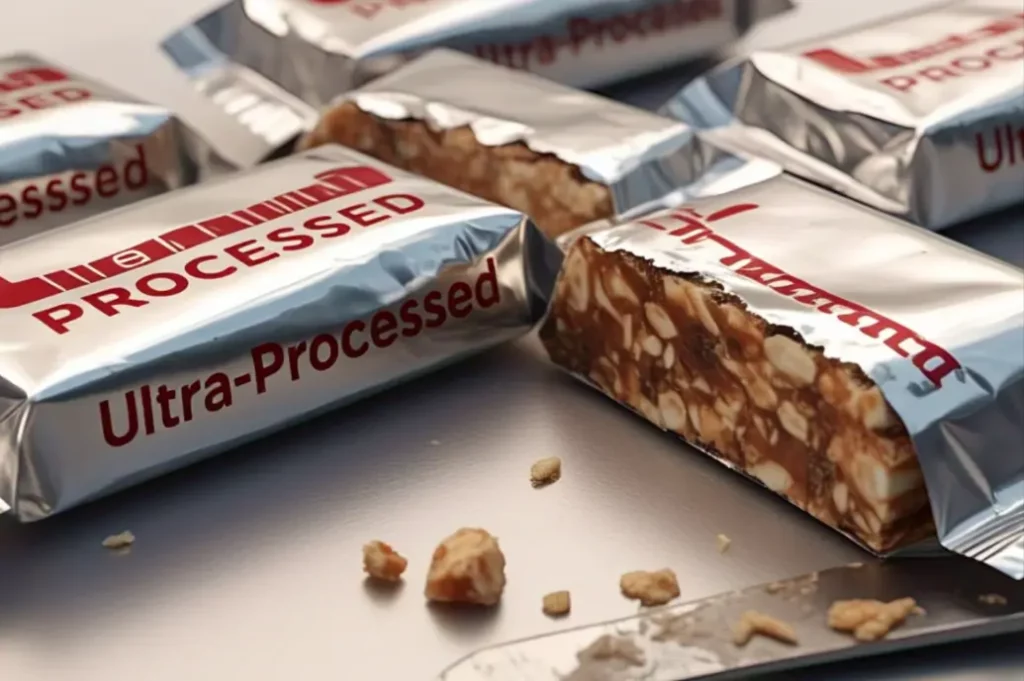15. Ultra-Processed Protein Bars

Despite their health-focused marketing and protein content claims, many commercial protein bars represent one of the most ultra-processed options in the breakfast landscape. Their ingredient lists often stretch to 20+ components, including multiple sweeteners, oils, preservatives, and protein isolates that make them questionable first foods of the day.
The morning timing of consuming these highly processed ingredients deserves particular attention. After overnight fasting, your digestive system is especially receptive to whatever you consume first. The combination of modified proteins, artificial sweeteners, and industrially produced oils found in many bars may trigger digestive discomfort and inflammatory responses that could affect energy levels throughout your morning.
The protein quality in these bars warrants closer examination as well. Many use soy protein isolate or whey protein concentrate that has undergone significant processing, potentially affecting how your body utilizes these proteins compared to whole food sources. Research published in the Journal of Nutrition has demonstrated that highly processed protein sources may trigger different metabolic responses than the same protein content from minimally processed foods—a particularly important consideration for your first meal after overnight protein breakdown.
The sweetener situation in protein bars introduces another layer of morning concern. Many products use multiple sweetening agents—from sugar alcohols like maltitol and erythritol to artificial sweeteners and conventional sugars—creating a complex carbohydrate profile that can affect blood glucose in unpredictable ways. For sensitive individuals, sugar alcohols consumed on an empty stomach can trigger particular digestive distress, including bloating and gas that may persist throughout the morning.
The fat sources in many protein bars deserve scrutiny as well. To achieve their candy bar-like texture and long shelf life, manufacturers often use palm oil, hydrogenated oils, or highly refined vegetable oils that provide little nutritional benefit beyond calories. These processed fats, consumed as your first morning intake, may temporarily affect vascular function according to research from the Cleveland Clinic’s Heart Lab.
For those monitoring their weight or athletic performance, the caloric density of protein bars can be deceptive. Many contain 200-300 calories yet provide limited satiety compared to whole food protein sources with the same calorie content. This difference matters particularly in the morning when establishing proper hunger and fullness cues for the day ahead.
If convenience protein fits your morning needs, consider transitions to less processed alternatives. Hard-boiled eggs provide complete protein alongside choline for brain health. Greek yogurt delivers protein with beneficial probiotics that support gut function rather than potentially disrupting it. For plant-based options, hemp hearts or chia pudding made with plant milk offer protein with essential fatty acids that many commercial bars lack entirely.
Conclusion
Starting your day with nutritionally sound choices sets the tone for sustained energy, stable mood, and optimal cognitive function. By avoiding these 15 problematic breakfast foods, you’re not just eliminating negative options—you’re creating space for truly nourishing alternatives that support your health goals.
Remember that breakfast doesn’t need to follow conventional rules. Traditional dinner proteins, leftover vegetables, or even soup can make excellent morning meals that provide balanced nutrition without the blood sugar rollercoaster that many conventional breakfast foods trigger.
The most important breakfast strategy is finding nutrient-dense options that work with your schedule, preferences, and health goals—creating morning patterns that fuel your best possible day.
